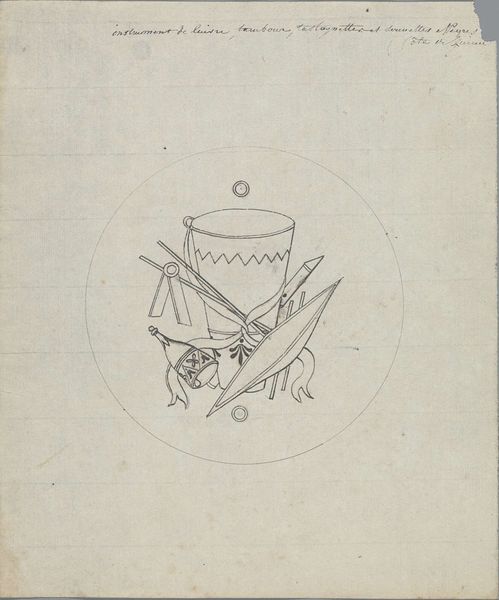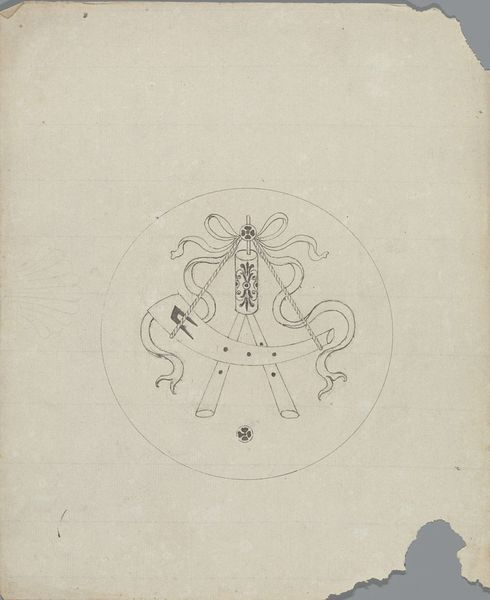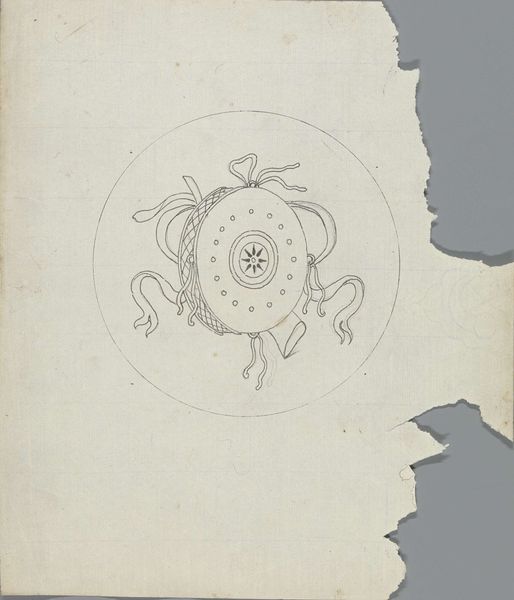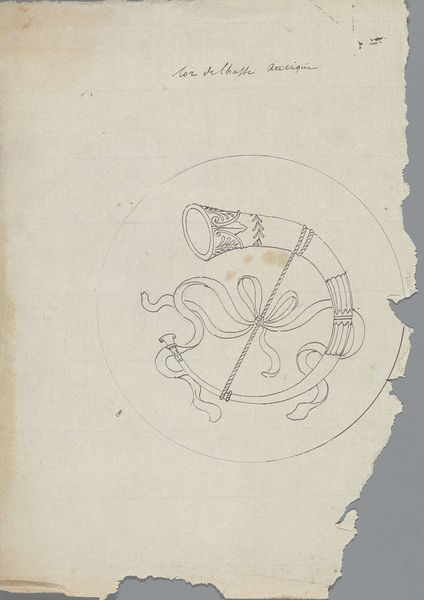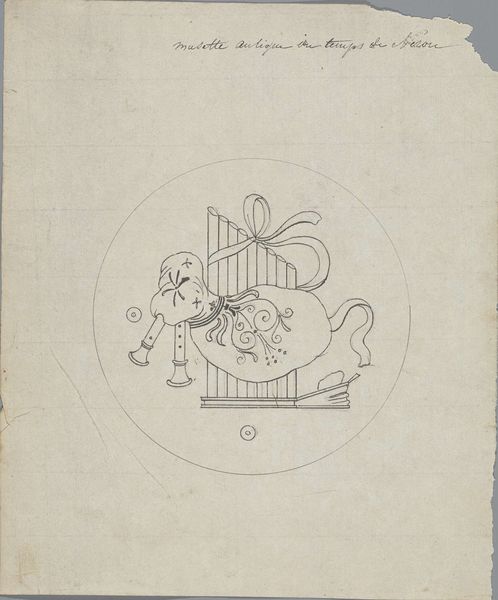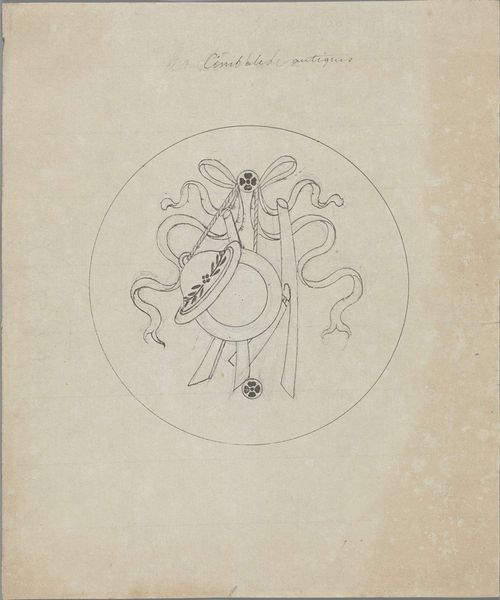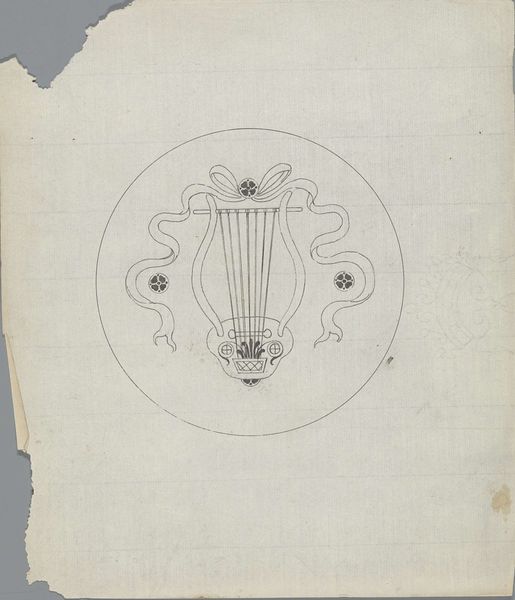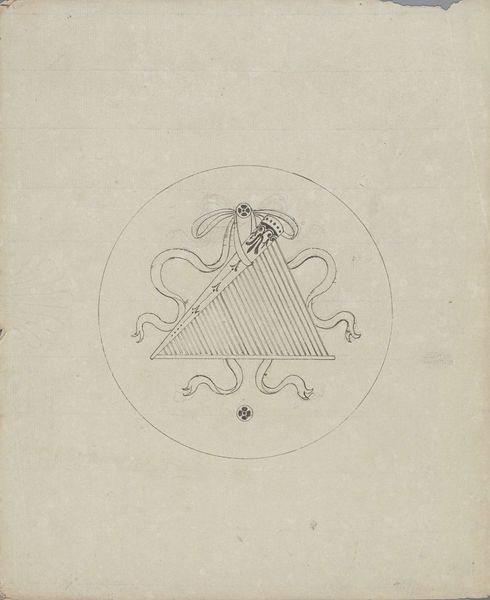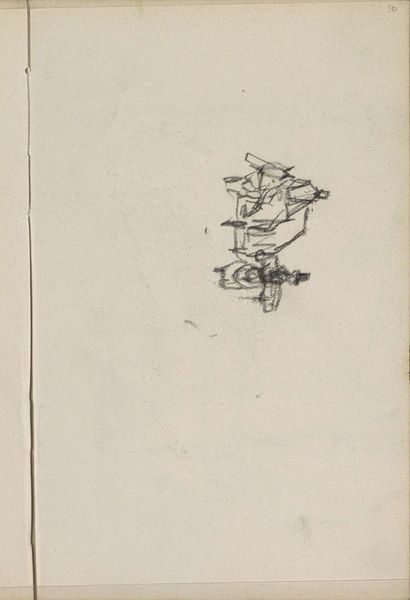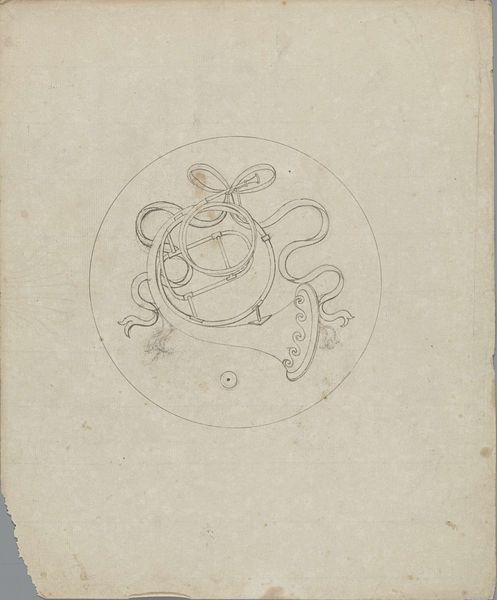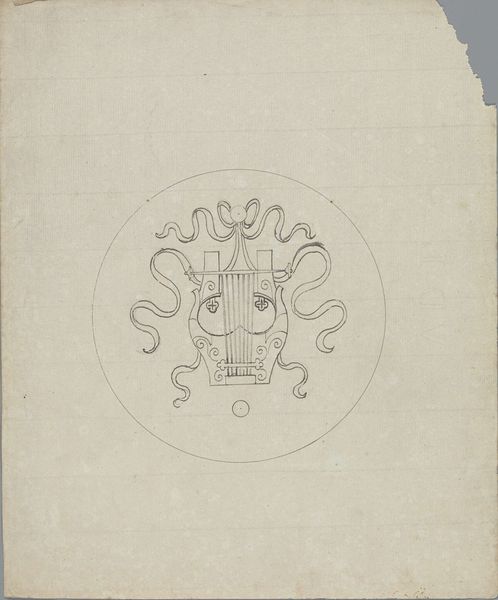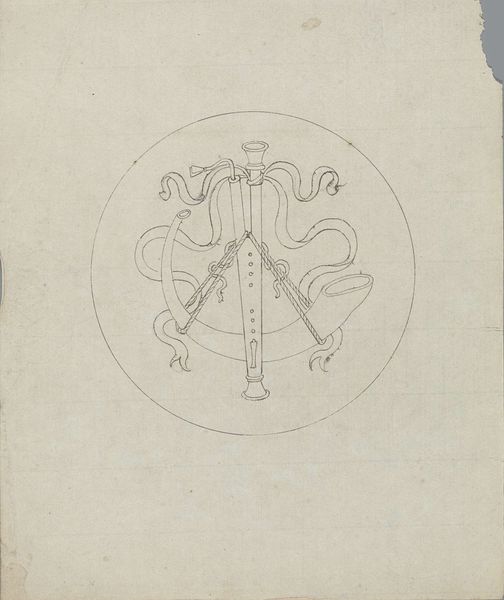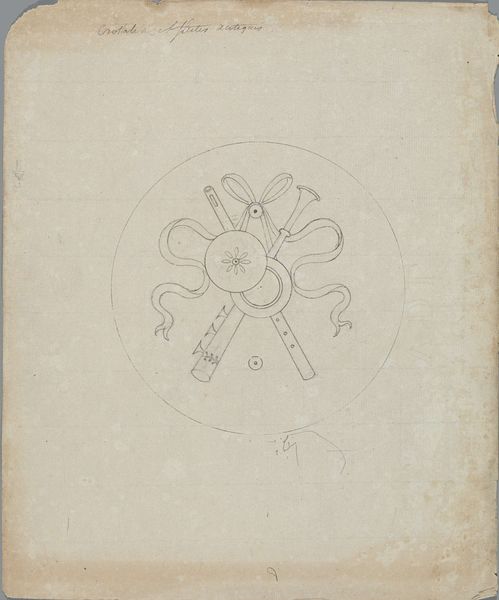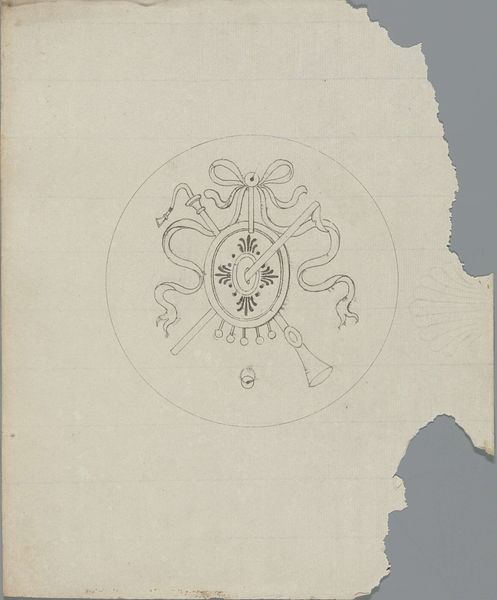
Tambour Royal, et pincettes sonores des Nègres de la côte de Guinée before 1828
0:00
0:00
drawing, paper, pencil
#
african-art
#
drawing
#
toned paper
#
light pencil work
#
blue ink drawing
#
quirky sketch
#
narrative-art
#
old engraving style
#
paper
#
personal sketchbook
#
idea generation sketch
#
geometric
#
pencil
#
ink colored
#
line
#
sketchbook drawing
#
sketchbook art
#
miniature
Dimensions: height 253 mm, width 208 mm, diameter 123 mm
Copyright: Rijks Museum: Open Domain
This is a pencil drawing by Pierre Félix van Doren from the early 19th century, titled ‘Royal Drum, and Sound Tongs of the Negroes of the Guinea Coast,’ and it presents us with a fascinating assemblage of musical instruments. The drum, prominently centered, is not merely a tool for rhythm, but a symbol of community and identity. It resonates with cultural memory, evoking the rituals and ceremonies of the Guinea Coast’s peoples. Look closely at the "sound tongs," or tuning forks, arranged alongside the drum, which points to the adaptability and ingenuity of musical expression. We see here, these instruments, emblems of the colonial gaze, captured within the European artistic tradition. Consider how musical instruments often transcend their primary function, becoming potent symbols of cultural exchange and adaptation. In the history of images, music embodies both harmony and discord, representing the complex interplay between colonizers and colonized. Like a snake eating its own tail, the cultural significance of these instruments will continue to resurface.
Comments
No comments
Be the first to comment and join the conversation on the ultimate creative platform.
